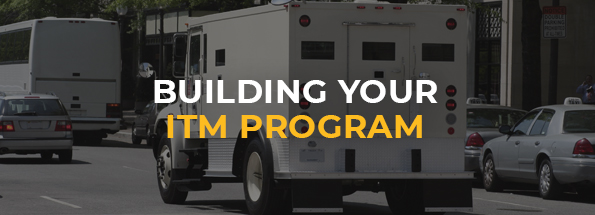How CIT Carriers Can Build a Successful ITM Program [Guide]

The role of CIT carriers in banking continues to expand with the on-going growth of Interactive Teller Machines (ITMs). These newer teller machines will not replace the venerable ATM, but they will fill important niches in banks’ retail strategies. CIT carriers that aim to maintain strong partnerships with banks will add ITM servicing to their cash management capabilities.
Integrating ITM services poses several challenges to CIT carriers, which require new policies and a revised risk management plan.
- Different banks will find different uses for ITMs. A CIT carrier will be put into a reactive mode to adapt to bank policies and may have to adapt to several policies if it services more than one banking system.
- ITMs expand the capabilities of teller machines. The added capabilities increase the complexity of routine services, putting demands on carrier employees to maintain performance standards.
- ITMs cause greater exposure to a number of risks, some of which will be familiar to carriers that service ATMS, but more varied and in some ways more intense.
Building a successful ITM program will require carriers to redefine and address the risks that come from the teller machines, with the added complexity that ITMs will almost invariably require the carrier to be more integrated into banking systems. Some of the added risks are part of the integration, so the banks themselves need to be clear about the risks and how the carrier will manage them.
Our new whitepaper, A CIT Carrier’s Guide to Building Your ITM Program, will help you organize a systematic approach to service quality and risk management in the ITM environment. Download the paper now and review your policies and practices to ensure you remain on the front edge of cash management.